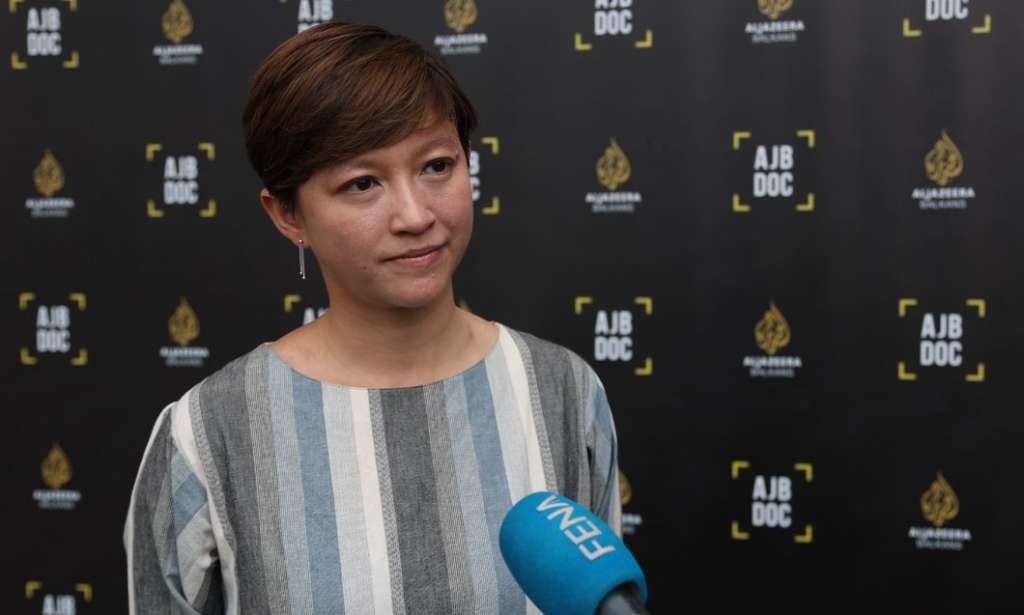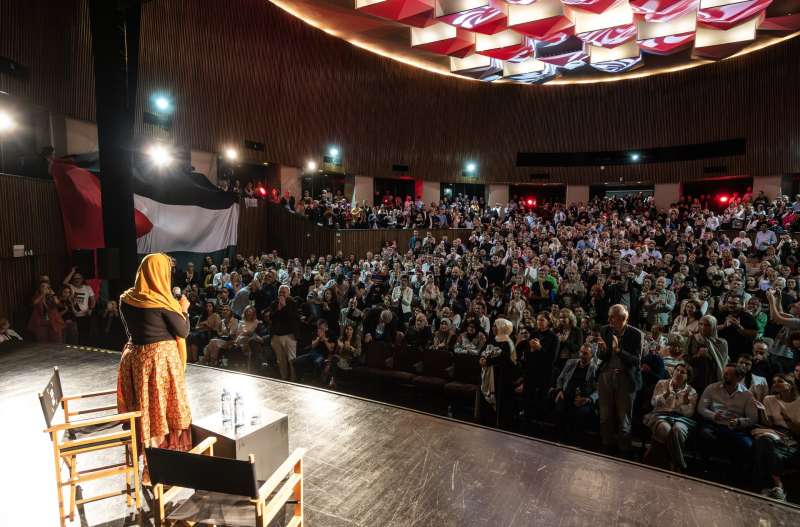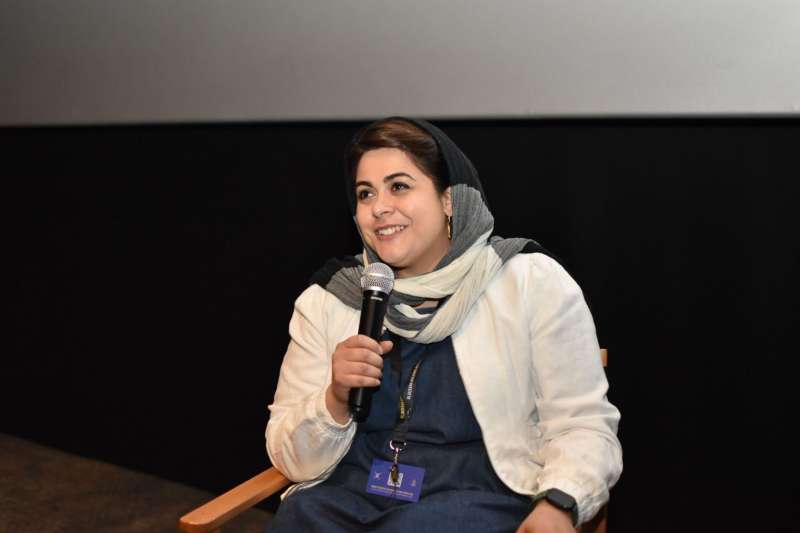SARAJEVO, September 19 (FENA) - What are the traits necessary for a person to become a useful and integrative part of Japanese society? How do we walk the fine line between the values of the community and collectiveness on one side and individual traits and freedom on the other? Shot over the course of one school year, Ema Ryan Yamazaki’s film "The Making of a Japanese" showcases the formative values and qualities instilled in the youth through the country’s education system.
The film which was screened as part of the Competition Program of the 7th AJB DOC Film Festival in Sarajevo documents the lives and school days of first and sixth-grade pupils in the Tokyo suburb of Tsukado, one of Japan’s largest public elementary schools. It follows their days from one spring to the next and gives a fascinating glimpse into the lives of these little people who go through the big-world dramas of everyday school life.
Yamazaki's film gives as a chance to observe the lives of both students and teachers and their subsequent development as individuals as well as their struggles. Yamazaki’s filmmaker eye offers us a peek into these formative years of a little person becoming a future adult member of Japanese society.
In an interview with FENA, the director Ema Ryan Yamazaki spoke about the preparations for the filming, getting permits, choosing the right school to do it at, and how the children themselves found it being followed by a camera throughout their school days.
"I went to a public school like this one. This is why I wanted to make a film like this because when I reflected on my life I realized that who I am is connected to the school system, for better or for worse. It actually took me six years to find a school that would let me film and then the Covid pandemic cancelled everything and then we finally filmed for one year. I was there for 150 days and filmed over 700 hours of material and then I edited for one year, so now you are watching the film ten years after I had this idea of making it," explains Yamazaki.
When asked about getting on board with parents themselves, getting their permission and earning their trust, Yamazaki says that there were plenty of parents who were supportive, especially with incoming first graders.
"I met the kids before they came to school from the local daycares so I built as many relationships as I could with their parents. You never know what child will be with what teacher and what will happen to the kid so I just thought it is important to get to know as many families as possible, so if something happens in the school I could go to the parents as I knew them, and ask are they comfortable with filming their child and things like this," says the author.
She underlined that the community was quite supportive and then those who didn’t want to participate didn’t have to.
"I think that the pre-production process worked. I really tried to get to know as many people as possible so it paid off throughout the year," she noted.
Alongside studying, the children primarily learn about self-discipline, good manners and the spirit of community. Children and teachers also navigate a fine balance between traditional collectivism, being respectful towards others, and individual freedoms.
We watch the children also as they go through disaster drills, in the course of preparations in case of earthquake, and other issues that emerge in their daily routine.
Asking the question that poses itself - if this film shows us that good manners, discipline and good behavior are as important as education itself, Yamazaki underlines that serious, hard studying, is a given in elementary schools in Japan even though it might not be visible on this specific example.
"Of course, we do the studying, I did not show you math classes but we do have them, but there is so much emphasis on building character, and what kind of person you are going to be. This is why I titled my film 'The Making of a Japanese' and I do think there is a huge emphasis on it," says the author.
She underlines that the common understanding is that all babies are born the same, here, in Japan, or anywhere else, "but we are taught, we are trained in different ways when we are young and this produces different kinds of people."
"In Japan collectively, we are taught to be this way. There are rules and less freedom maybe than what you are used to, but as a result, this is the type of schooling and the society we have," she said.
Talking about this concept in Japanese society from a young age to have more emphasis on collectivism perhaps at the expense of individualism and the direction the Japanese society is going forward into the future, Yamazaki says that the strong suit of Japanese people is their collectiveness, teamwork, responsibility to others, and their surroundings, but that this society also has many problems.
"This is especially visible with older, high school kids and young adults, particularly given the phenomena of 'loneliness epidemic', such as individuals not fitting in and then they feel lonely and they can become suicidal," explains Yamazaki.
A nationwide survey conducted in Japan in 2022 found that 40.3 percent of the 20,000 respondents “felt lonely” at least occasionally — a rise of 3.9 percentage points from 2021, when Japan’s social distancing measures were still in place. (https://japannews.yomiuri.co.jp/society/general-news/20230412-102910/)
While loneliness is not entirely unexpected in a country known for its insular social culture, what stands out is that those in their 20s and 30s reported the highest levels of loneliness, the survey showed.
Asked about how this is going the affect future Japanese society and how it plans to address this issue, Yamazaki believes that, primarily because of the internet and because of cultures merging, now there is a lot more influence from outside of Japan, which could be a positive thing.
"What I see now is that Japan is doing a better job of trying to cater more to individuals. Sometimes it is at the cost of collective harmony, so my question is: will our trains keep running on time in thirty years, or forty years? Maybe it will be ok if they are a few minutes late if it means everybody is a bit happier," she noted.
She believes that Japan is headed in that direction and education is less strict and the kids are respected more to have their own individuality and not be all the same.
"It might be a great thing but I think it will reflect onto society for better and worse, so I think that we are shifting to the one-million-dollar question ‘'what to keep from our traditions and what we should change' and if I knew the answer I would be very rich and successful. I do not know, but I am trying to at least pose these questions in my film," underlined Yamazaki.
Speaking about this whole experience of making this film when she reflects upon it today, following the education process of these children, she says it was her life-long project.
"I got to observe them every day. We became a part of the school system, like air. Maybe you noticed that the kids were not bothered by the camera, we were just there all the time, and I'd like to think we were part of the system which is why were able to capture all of it. It reminded me about the things that were the same in my childhood and the things that have changed as well, but I think, ultimately, my thesis is correct – that what happens in school, especially the young, primary school age, is a reflection of the future of society and this was the point, this is why I wanted to make this film," concluded Yamazaki in an interview with FENA.
(FENA) S. R.












